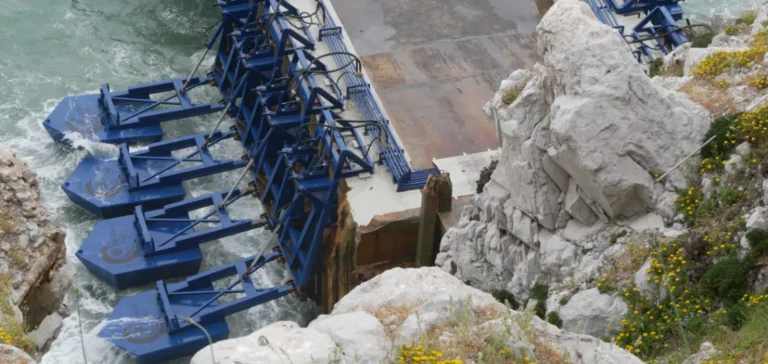Eco Wave Power Global AB, a company specialising in onshore wave energy technology, has confirmed the completion of all floaters required for its first pilot project in the United States. The installation site is located on an existing jetty at the Port of Los Angeles, representing significant progress towards the realisation of wave energy infrastructure on American soil.
Industrial partnerships and technological advancement
The floaters were entirely manufactured by All-Ways Metal, a California-based metal fabrication company owned by a woman, serving as the official local manufacturing partner for this pilot. This collaboration ensures that the entire production chain remains within the United States, in line with the company’s strategy focused on local sourcing and the development of national industrial expertise. After the painting phase, the floaters have now entered the assembly and logistics phase, with deployment expected before the end of the month.
The system will convert wave movement into electricity via Eco Wave Power’s patented onshore conversion unit, providing a low-maintenance alternative to conventional offshore solutions. According to Inna Braverman, Founder and Chief Executive Officer of Eco Wave Power, “The completion of production confirms the transition of the project to a real application in the American market.”
Deployment supported by sector partners
The project benefits from the support of the Shell Marine Renewable Program, highlighting the involvement of major industrial players in the marine renewable energy sector. Earlier this year, teams from Eco Wave Power and the Port of Los Angeles conducted a joint visit to the site to validate the deployment strategy and ensure compliance with the port’s operational requirements.
Official commissioning is scheduled for the summer, positioning this pilot as a first in the United States and a showcase for the potential of onshore wave energy on the North American market. According to the information provided, this project strengthens the company’s industrial presence in California and deepens ties with the local industrial ecosystem. The initiative also places emphasis on the creation of skilled jobs and the development of expertise in the wave energy sector.
The project represents a strategic milestone for Eco Wave Power in its international development, while illustrating the growth of partnerships between technology and local industry players.






















